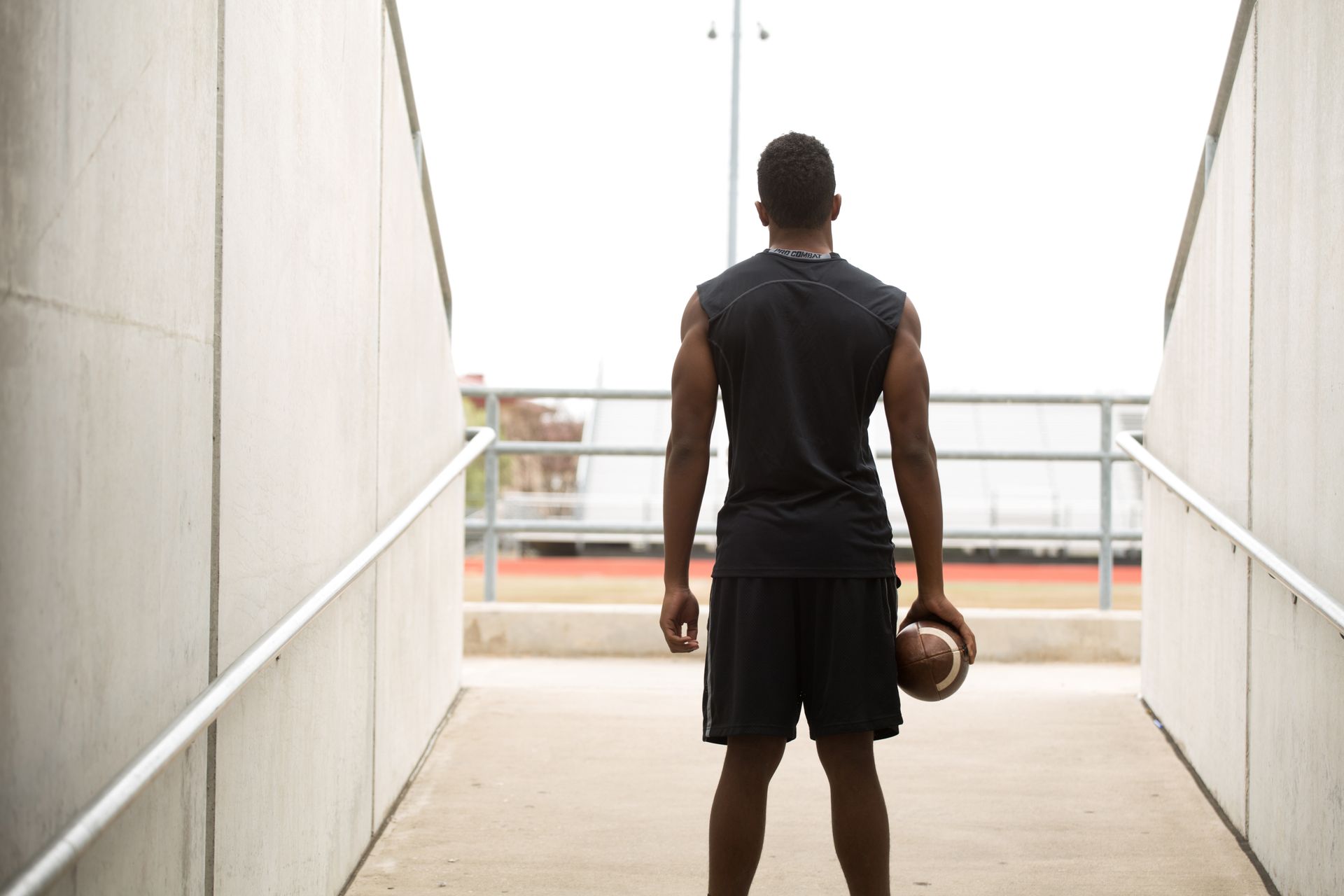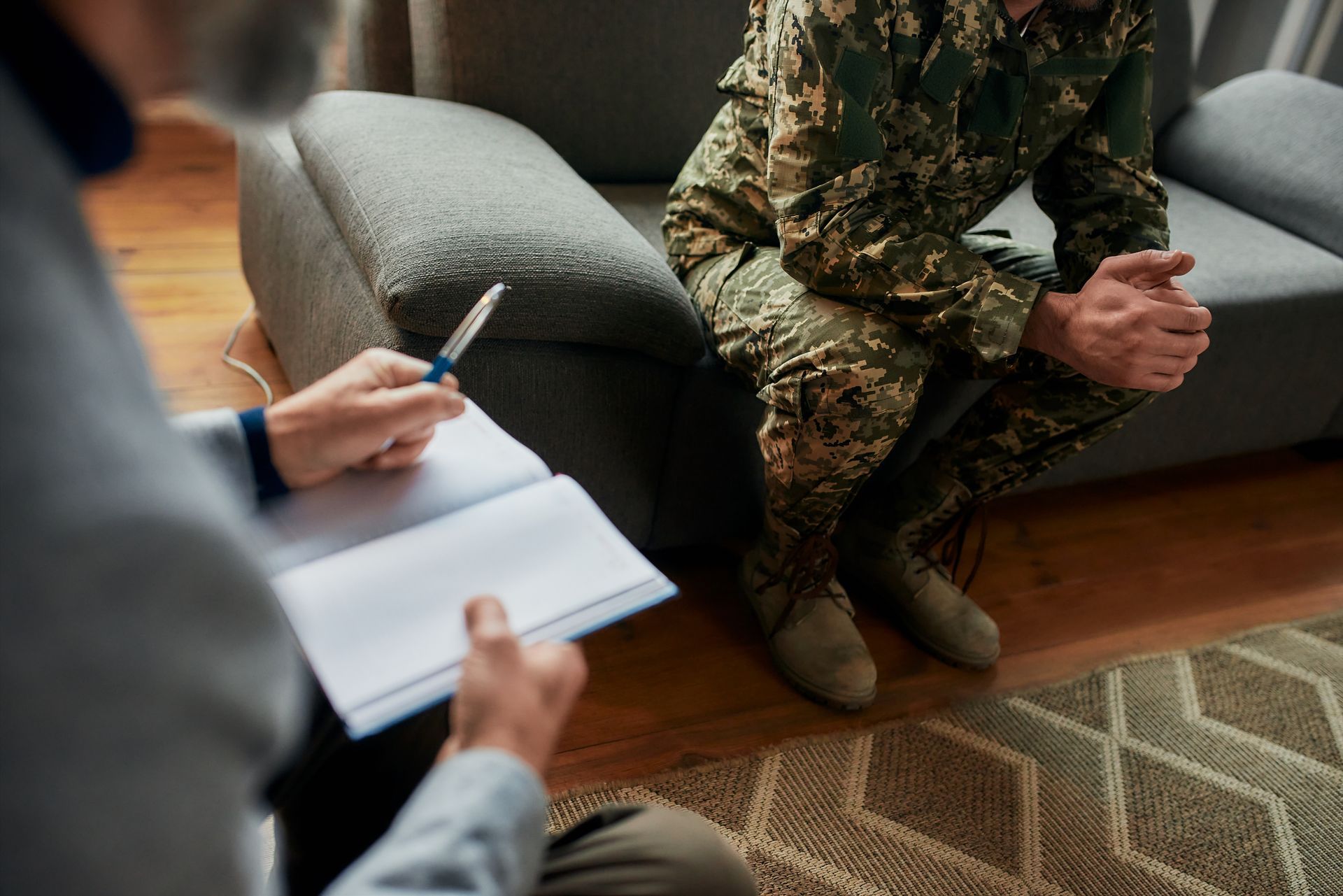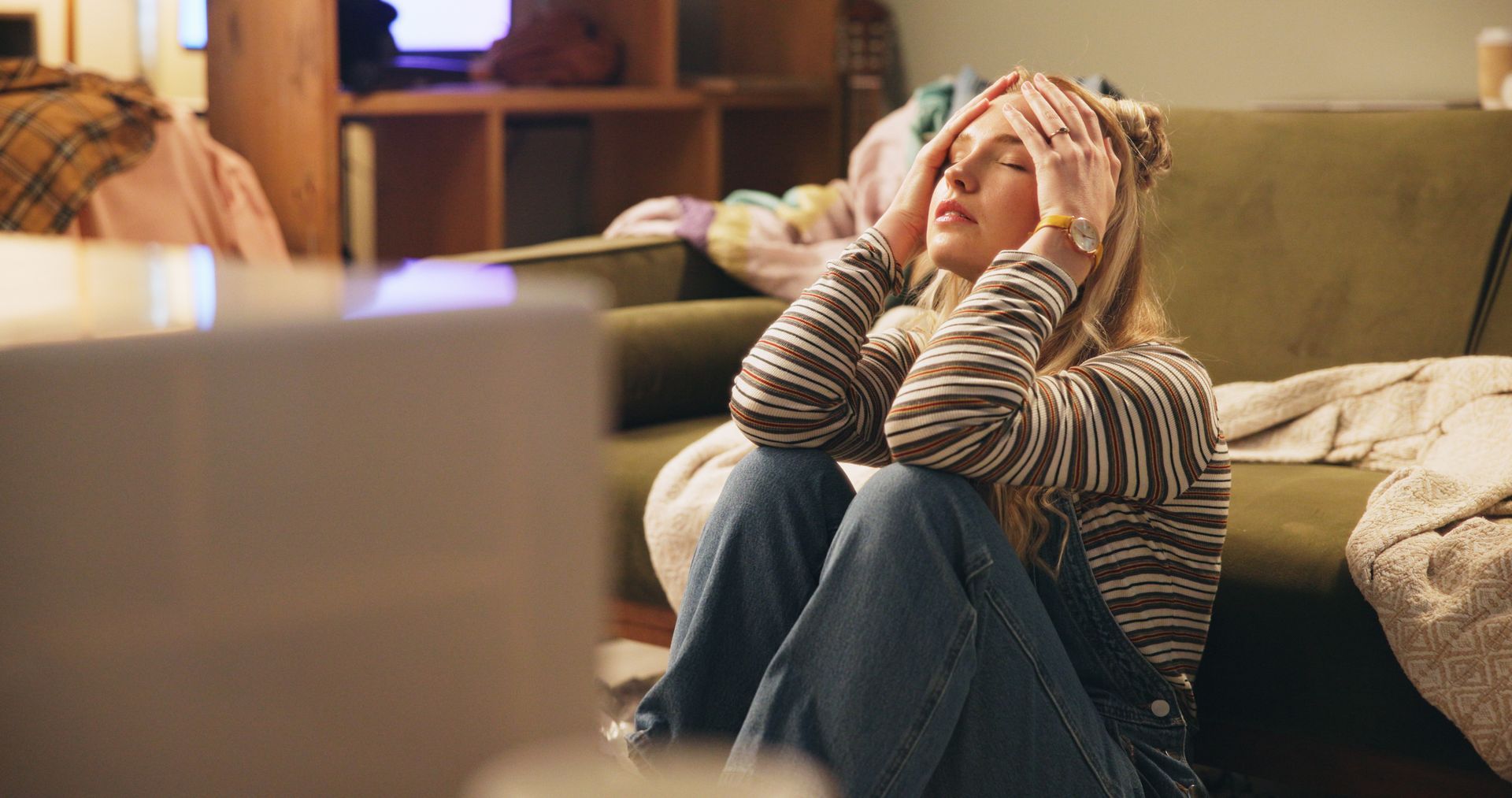Navigating Anxiety and Depression in Athletes
Peak physical health is essential for young athletes. However, many can overlook the importance of maintaining young athletes’ mental health. Collegiate athletes face significant pressure to excel both on the field and in the classroom. Many may struggle to find balance, which can contribute to youth athletics with depression and anxiety. At Mind Matters, we offer compassionate care and whole-person mental health treatment for athletes with anxiety and depression to stay at the top of their game.

What Are the Causes: Athletes With Anxiety and Depression
Earning a spot in college athletics is highly competitive. Only a small percentage of high school athletes, approximately 6%, have the opportunity to play in college, and the pressure of meeting performance expectations may feel overwhelming for students. Young athletes are particularly vulnerable to burnout, jeopardizing their academic and athletic futures. Sustaining an injury, especially one that prevents play for an extended period of time, can send an athlete into depression.
Collegiate sports require a considerable amount of a student’s time, which can cause feelings of isolation from peers who aren’t on the team. Athletes often miss out on developing different types of relationships and exploring opportunities for new experiences, alienating them from roommates and classmates.
Depression and Anxiety Treatment for Athletes
Talk therapy and psychiatric medication offer the best treatment outcomes for athletes with mood disturbances. Mindfulness and breathing exercises are tools that athletes can use outside of therapy sessions to calm anxiety and intrusive thoughts. Working with a therapist can help athletes learn to challenge negative thoughts by reframing them in a more positive light.
Psychiatric medications can make working through depression more manageable. SSRIs (selective serotonin reuptake inhibitors) provide dual anxiety and depression treatments. Beta blockers help reduce the physiological symptoms of anxiety, including:
- Sweating.
- Shaking.
- Increasing heart rate.
Where Does the Time Go as a Young Athlete?
We all have 24 hours in a day, but for many young athletes, that may not feel like enough. According to the policy of the National Collegiate Athletic Association (NCAA), athletes can practice and complete individual training between 28 and 33 hours weekly, depending on their school’s division.
Additionally, collegiate athletes must take their school’s minimum course credits per semester and maintain a GPA of 2.3 or higher. The average time spent studying is two to three hours per credit, thus consuming another 24 to 36 hours of a young athlete's week. Time management skills are vital for athletes to incorporate essential tasks, social activities, and downtime during the week.
Meet Josh Hilton, PMHNP-BC
As a board-certified psychiatric-mental health nurse practitioner, Josh Hilton, PMHNP-BC, specializes in care for student athletes and diagnoses and treats various psychiatric conditions, including depression and anxiety. He utilizes specialized screening tools to identify students' needs accurately and recommends treatments that don’t jeopardize their standing with national sports organizations.
Young Athletes and the Pressure, Anxiety, and Depression They Face
Josh believes “athletes experience physical, mental, and social challenges that many non-athletes do not face; this can increase the athlete’s risk of unrecognized mental illness and potential decreased quality of life in the long run.” He goes on to say that “athletes’ lives are challenging due to increased schedule demands related to training and competition, enhanced academic pressures, heightened social expectations, and the intense pressures of competition. Adding to these pressures is the ongoing and prevalent social stigma that surrounds mental illness; thus, decreasing the likelihood that the athlete will be willing to discuss any potential signs of mental illness.”
His experience treating athletes allows him to offer personalized treatment approaches, highlighting the importance of a healthy body, mind, and spirit. Working with Josh can help young athletes reach their goals without sacrificing friendships, grades, or mental health.
Find Athlete Mental Health Providers Near Columbus, OH at Mind Matters
Depression and anxiety are obstacles that our providers can help you overcome. At Mind Matters, we offer modern-day solutions and empathetic care that help build clients’ confidence and ability to succeed. Our team truly believes in the whole-person behavioral health approach to caring for mental health.
Call (614) 545-9773 or schedule an appointment online to help athletes with anxiety and depression. Mind Matters is located near Columbus, OH. We provide therapy services in Columbus, Dublin, Hilliard, Powell, Worthington, Galloway, Grove City, Bexley, Grandview Heights, Clintonville, Upper Arlington, and Franklinton, OH. Our team also provides telehealth appointments to the entire state of Ohio.





